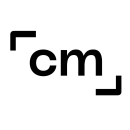About a year ago, the world looked different. Without a Covid-19 vaccine in sight, and an increasingly uncertain economy, people were feeling the burden of the pandemic in even more extreme ways than they are now.
While many companies grappled with layoffs and increased workloads, some teams buckled under the pressure of meeting expectations. It makes sense: Overnight, many employees were saddled with homeschooling children, caring for their families and managing the weighty feeling of the unknown while working overtime for their employers. As a result, building company culture took a backseat for many organizations, even those that once enjoyed noisy happy hours and team-bonding activities.
Luckily, not every company faced this decline in culture-building. Some forward-thinking startups took the opportunity to double down on their commitment to their employees and focus on fostering an even more diverse, supportive environment. Doing so in a remote workforce isn’t easy, but for two local leaders, the effort was worth it.
CampMinder builds technology used by nearly 1,000 summer camps around the United States to help them manage registration, staffing, attendance, health care and more.
How did the pandemic and remote work change your understanding of culture-building within your company?
The pandemic and the transition to remote work reinforced that our culture is not about parties and perks — it’s about our purpose, values and the way we respond when confronted with adversity.
The pandemic had a devastating impact on camps last summer, which impacted CampMinder significantly and resulted in difficult decisions, including layoffs and pay cuts. We communicated openly with team members at every step and doubled down on supporting them, with a focus on providing mental health resources and flexibility around schedules and deadlines.
Fortunately, the camp industry came back in a big way in 2021, and we’ve been able to rebuild our team and refocus on growth. If anything, our culture grew stronger as a result of the pandemic, as we saw that we had the capacity to weather profoundly difficult challenges and persevere with our values intact.
How did you deliberately build upon your existing culture throughout 2020?
We supported our team members by encouraging them to prioritize their physical, emotional and mental health above all else. In addition to offering a curated list of resources, we implemented a companywide mental health day, coached managers to be flexible around schedules and deadlines, and altered our performance review process to include a focus on individual well-being.
We also implemented a regular communication rhythm by holding regular all-company updates, during which CampMinder’s CEO transparently shared the company’s financials and the steps we were taking to ensure a viable future. We made an effort to share information, both good and bad, with the whole team as soon as it became available. This built trust and kept everyone aligned around a common direction.
We maintained connection by hosting a variety of Zoom social events, including our own version of MTV’s “Cribs,” campfire storytelling, musical performances and at-home scavenger hunts. When the novelty of Zoom wore off, we continued to offer optional events — but we made sure people knew it was OK to opt-out. We reminded them that it was alright to step away from the computer and rest.
We saw that we had the capacity to weather profoundly difficult challenges and persevere with our values intact.”
What lessons about company culture will you carry beyond the end of the pandemic?
First, there is always opportunity in a crisis. The opportunity may not present itself right away, but eventually, it will show up. For CampMinder, the need to rebuild our team after conducting layoffs gave us the opportunity to implement more inclusive hiring practices and begin intentionally building a more diverse team. We also built on the momentum of last summer’s national Black Lives Matter movement to formalize diversity, equity and inclusion efforts broadly across our organization.
Second, a crisis reveals and amplifies your existing organizational culture, so there’s unparalleled value in having built a resilient culture before a crisis occurs. This means nurturing a strong sense of purpose, authentic core values, transparent and inclusive leadership, and engaged and empowered team members. A resilient culture doesn’t happen overnight. It takes deliberate cultivation over a long period of time — and the best time to start building it is today.
FareHarbor is an online booking system for tours, activities, attractions and more.
How did the pandemic and remote work change your understanding of culture-building within your company?
We’ve always had a culture that we’re proud of. We’re focused, energetic people coming together to solve our clients’ problems — all while having fun. When the pandemic hit, we realized that our physical office spaces enabled a lot of the brainstorming, collaboration and culture-building that was responsible for the overall enjoyment of our teams. These offices were exciting places where engagement happened organically throughout the day as people intermingled through coffee lines, on lunch walks, or around various open working spaces.
As we closed our offices in March 2020, we learned that to enable the type of employee experience we were striving for, we’d need to be far more deliberate about creating engagement opportunities versus relying on chance interactions in a physical space.
How did you deliberately build upon your existing culture throughout 2020?
We knew, from our experience of rapidly scaling, that having an employee focus not only makes a company a great place to work, but also improves our operations. More engaged teams run in the same direction, with lower barriers and better communication between functions.
Once again, this was easier in the office because team outings were common, and cross-functional communication was inevitable as we worked side-by-side. As we moved to remote work, we challenged our local leadership to keep our engagement levels high. We settled on a nice mix of old and new styles by continuing the normal business update cadence and empowering managers of each team to build up their own culture and evolve the way they interact with other teams.
Our teams all found different equilibriums, but we definitely saw an incredible amount of virtual games, trivia, happy hours and more. As an organization, we tried to create additional cross-team visibility through more frequent and public employee highlights and shoutouts, and brought our entire region together monthly to share business updates and priorities, review ongoing challenges and wins from each department, introduce new hires and more.
Having an employee focus not only makes a company a great place to work, but also improves our operations.”
What lessons about company culture will you carry beyond the end of the pandemic?
The uncertainty of the last year necessitated a shift in the way we communicated to our teams. By intentionally sharing more about our business priorities and strategies, as well as explicitly tying employee effort to business outcomes, we created an increasingly transparent culture that fostered additional trust and buy-in.
One critical takeaway is that we should have more flexible work arrangements for our employees. We moved from a one hundred percent in-office culture to a flexible, hybrid work style. This means that we need to apply our past year’s cultural learnings to create similar experiences both in-person and remotely. At our offices, we are excited to return to some of what we enjoyed in the past, while listening to employee feedback on how they want to use the space now. For remote employees, it’s about finding ways to ensure that they are exposed to the same experiences as those who work in-person, and that they have the tools they need to be successful.
We’re still working our way through our transition to a hybrid model, but we’re confident that if we keep up our transparency, adaptability and continue listening to our employees, we will come out of the pandemic closer as an organization than when we entered it.








